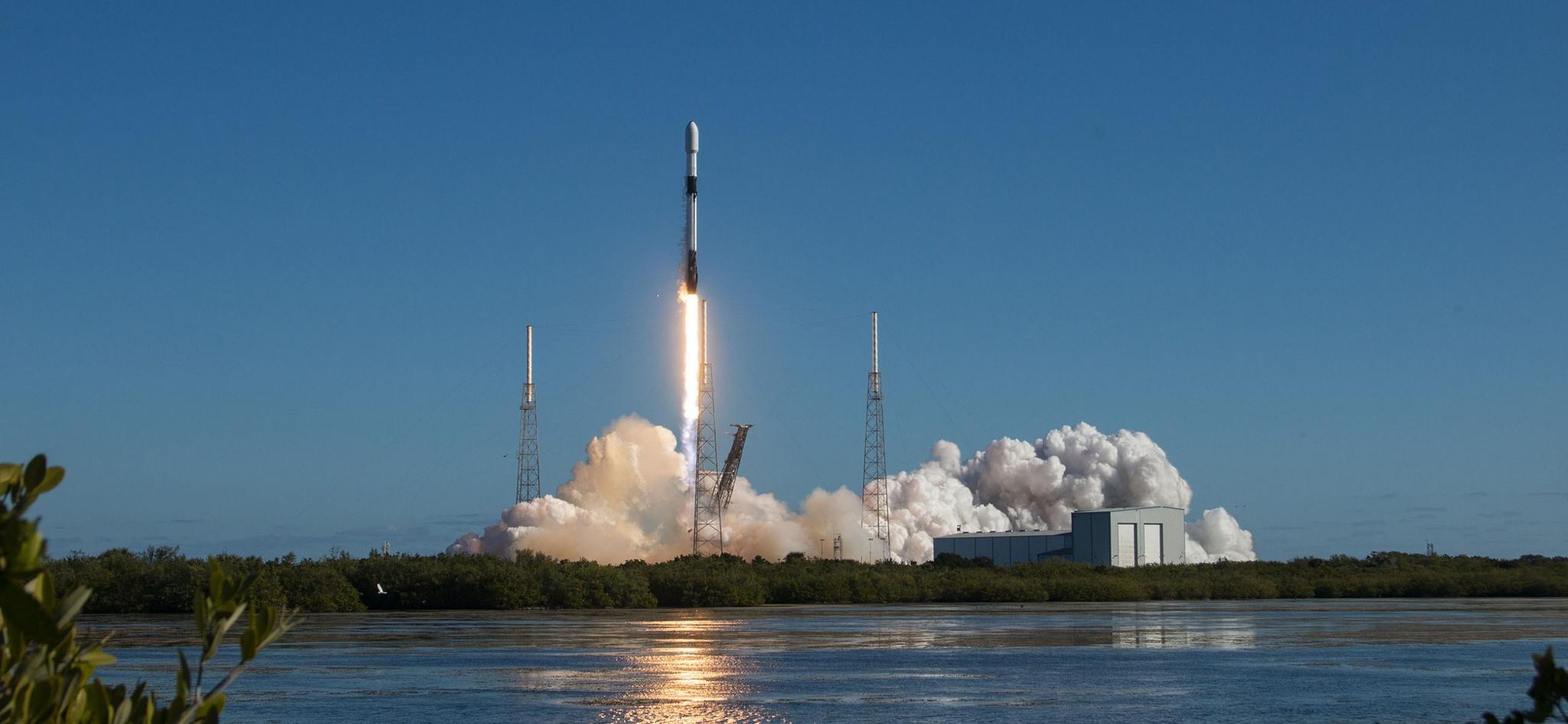36 Planet SuperDoves Successfully Launch on SpaceX’s Falcon 9 Rocket
Today we successfully launched 36 SuperDove satellites, our Flock 4y, to space aboard a SpaceX Falcon 9 rocket! Our team has established contact with all 36 SuperDoves and has kicked off our automated commissioning process. This marks Planet's 32nd successful launch, totaling over 500 satellites launched since our founding.
These satellites were lofted into orbit from Space Launch Complex 40 in Cape Canaveral, Florida on SpaceX’s Transporter-6 mission, marking Planet’s eighth flight with the launch provider. Once in orbit, contact with the 36 SuperDoves was established, holding our 100% successful contact rate with our satellites.
These 36 SuperDoves will replenish our current fleet of approximately 200 satellites in orbit, working to scan the Earth every day to make change visible, accessible, and actionable. This data is incorporated into the workflows of over 800 customers globally and thousands of users in agriculture, sustainability, government, and more, to help power better decision making. From measuring crop yields to fighting illegal deforestation to supporting land restoration efforts, global users are finding great value in our monitoring capabilities. We're excited to bring even more SuperDove satellites to orbit to further our mission of making daily change visible, accessible, and actionable.
“It’s in Planet’s DNA to continually innovate in space to ensure our users are equipped with the best data. We do this by deploying the latest technology and sensors on each satellite we launch to increase the frequency, resolution, and quality of the data that powers our software and tools,” said Planet CEO, Will Marshall. “I’m incredibly proud of our team for delivering 36 more SuperDoves to orbit that will contribute to our unprecedented global monitoring mission. Thanks for the ride, SpaceX!”
Each Planet SuperDove is equipped with eight spectral bands that provide users with accurate, consistent and analysis-ready data. But that’s not all - a select number from this flock are adorned with artwork that’s been laser-etched onto each side panel. A portion of the art on Flock 4y pays tribute to the legacy of Star Trek creator Gene Roddenberry, as part of our collaboration with The Roddenberry Foundation’s Boldly Go Campaign. We share a similar mission with The Roddenberry Foundation - of using space to inspire and help life on Earth. We're thrilled to see the culmination of this work launched to space today.
To bring this to life, Rod Roddenberry, CEO of Roddenberry Entertainment and Gene’s son joined Planet's Vice President of Launch, Mike Safyan, to lightheartedly chat about how Star Trek and Planet’s missions align – and answer the internet’s burning questions about how satellites get into space. Snippets from their virtual conversation can be found here and in the video embedded below.
For more information on Planet’s Flock 4y and its commissioning process, follow along at our Twitter account.
###
Forward-looking Statements
Except for the historical information contained herein, the matters set forth in this press release are forward-looking statements within the meaning of the "safe harbor" provisions of the Private Securities Litigation Reform Act of 1995, including, but not limited to: whether Flock 4y will successfully replenish Planet’s existing SuperDove fleet; Planet’s constellation of satellites, including Flock 4y, being able to meet its customers’ needs; and whether Planet’s constellation of satellites will be able to provide insights for customers and strategic partners in accordance with their design, or at all. Forward-looking statements are based on Planet’s management’s beliefs, as well as assumptions made by, and information currently available to them. Because such statements are based on expectations as to future events and results and are not statements of fact, actual results may differ materially from those projected. Factors which may cause actual results to differ materially from current expectations include, but are not limited to: the interruption or failure of Planet’s satellite operations; whether Planet experiences any adverse events, such as its satellites failing to operate as intended, being destroyed or otherwise becoming inoperable; Planet’s satellites not being able to capture Earth images due to weather, natural disasters or other external factors, or as a result of its constellation of satellites having restrained capacity; and the other risk factors and disclosures about Planet and its business included in Planet's periodic reports, proxy statements, and other disclosure materials filed from time to time with the Securities and Exchange Commission (SEC) which are available online at www.sec.gov, and on Planet's website at www.planet.com. All forward-looking statements reflect Planet’s beliefs and assumptions only as of the date such statements are made. Planet undertakes no obligation to update forward-looking statements to reflect future events or circumstances.

Ready to Get Started
Connect with a member of our Sales team. We'll help you find the right products and pricing for your needs


